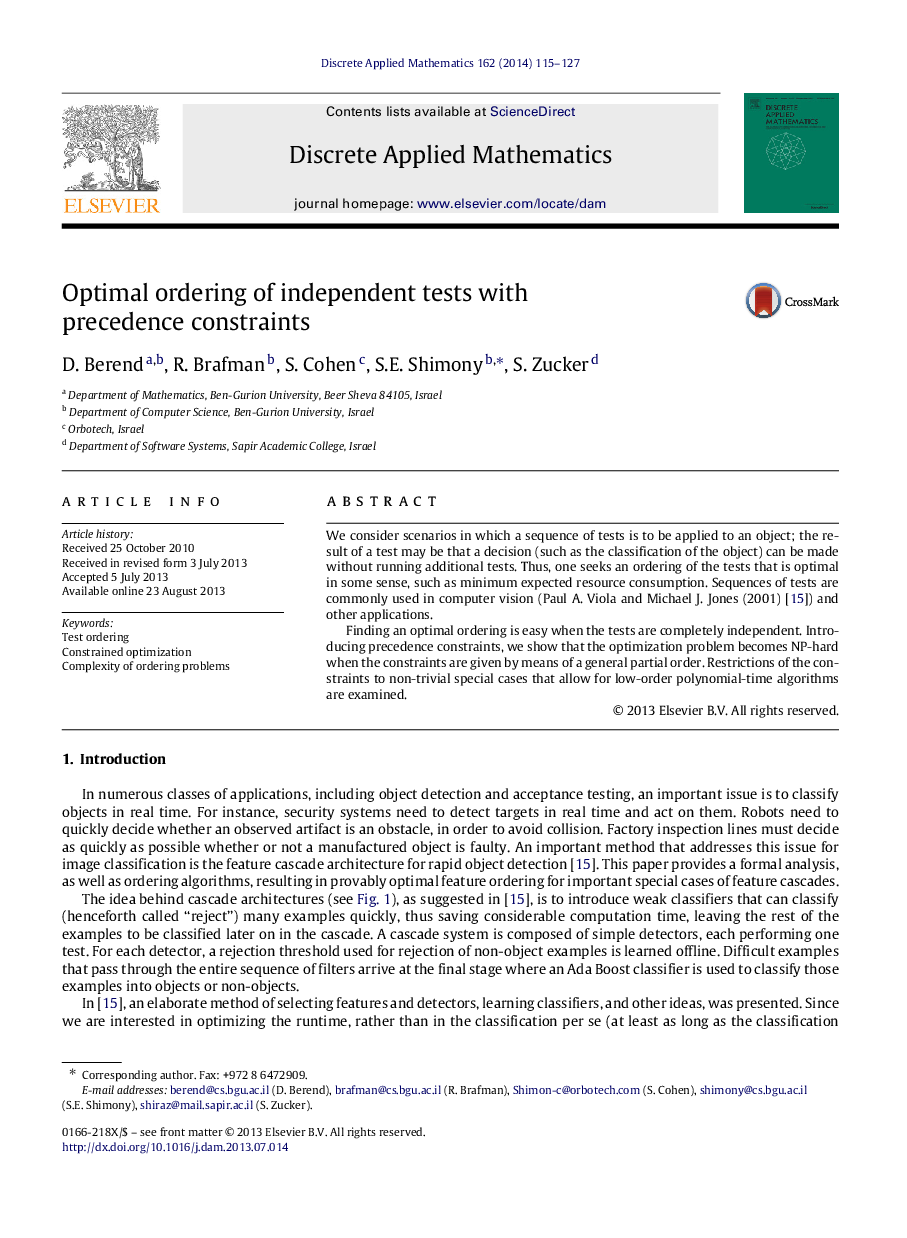| Article ID | Journal | Published Year | Pages | File Type |
|---|---|---|---|---|
| 6872451 | Discrete Applied Mathematics | 2014 | 13 Pages |
Abstract
Finding an optimal ordering is easy when the tests are completely independent. Introducing precedence constraints, we show that the optimization problem becomes NP-hard when the constraints are given by means of a general partial order. Restrictions of the constraints to non-trivial special cases that allow for low-order polynomial-time algorithms are examined.
Related Topics
Physical Sciences and Engineering
Computer Science
Computational Theory and Mathematics
Authors
D. Berend, R. Brafman, S. Cohen, S.E. Shimony, S. Zucker,
